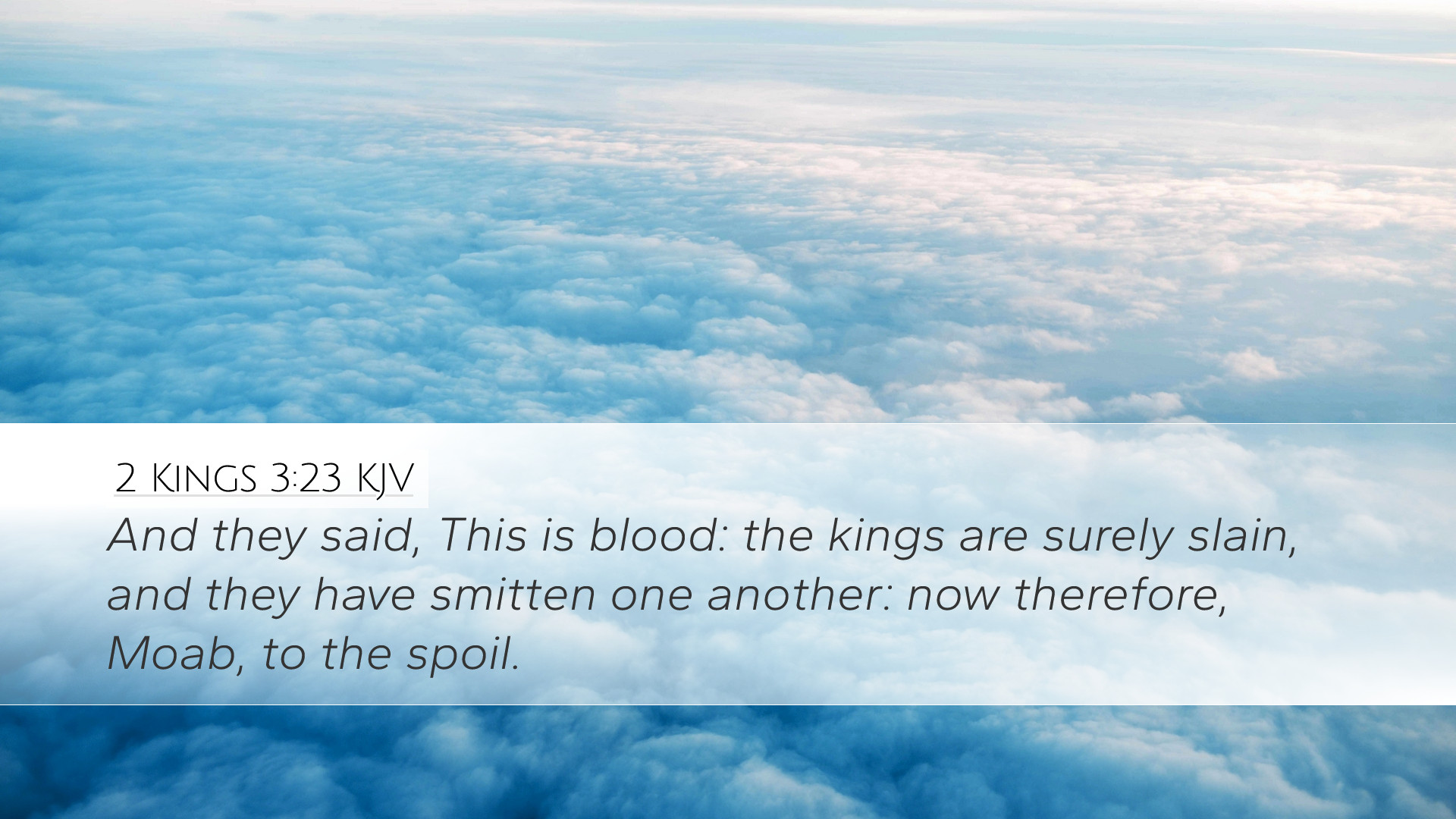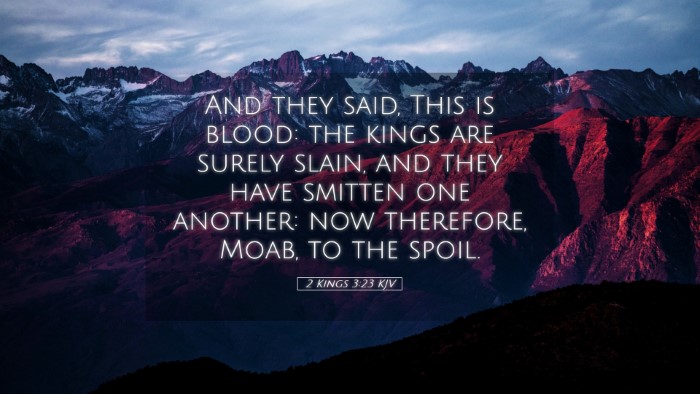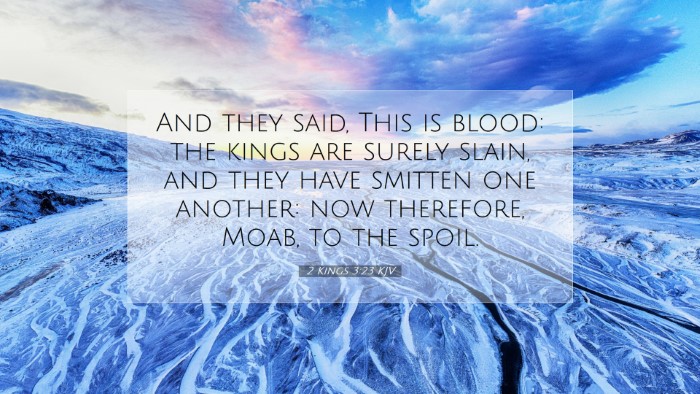Commentary on 2 Kings 3:23
Bible Verse: "And they said, This is blood: the kings are surely slain, and they have smitten one another: now therefore, Moab, to the spoil!"
This verse is part of a narrative that reveals profound truths about discernment, the consequences of human actions, and the perception of divine intervention. In understanding this passage, we can draw upon various insights from public domain commentaries, offering a multifaceted view for pastors, students, theologians, and Bible scholars.
Contextual Overview
The events in 2 Kings 3 unfold during a military campaign against Moab by the allied forces of Israel, Judah, and Edom. The verse captures a crucial moment when the soldiers of Israel interpret the scene before them as indicative of conflict among their enemies instead of a sign of God's deliverance.
Insights from Matthew Henry
Matthew Henry focuses on the misinterpretation of events by the Moabite observers, noting that they mistakenly believe the tumult they hear signifies the death of their foes:
- Perception of Blood: Henry illustrates that the sight of the battlefield and the sound of conflict led the Moabites to think the blood shed was that of their enemies. This highlights how easy it is to misinterpret circumstances without sound judgment.
- Divine Strategy: He emphasizes that God often uses confusion among enemies as a strategy for His people's victory. This reflects the theme that while humans see chaos, God can orchestrate victory in the midst of it.
- Moral Lesson: Henry concludes with an admonition about the nature of human discernment, calling readers to seek a deeper understanding of events rather than relying solely on surface appearances.
Insights from Albert Barnes
Albert Barnes provides a historical and theological perspective on the implications of this verse:
- The Role of Prophecy: Barnes points out that Elisha's prophetic actions earlier in the chapter set the stage for what occurs in this verse. He argues that God's providence was at work, turning the hearts of the Moabites to believe the kings were at war, thus leading them to their demise.
- Symbolism of Blood: He explains that the "blood" mentioned can symbolize judgment and the severing of relationships brought about by sin. The Moabites, seeing blood, misconstrued the Lord’s judgment as a sign of victory for themselves.
- Human Limitations: Barnes also highlights how human beings tend to hastily draw conclusions from what they see. He cautions against jumping to conclusions without grasping the full circumstances, emphasizing the importance of spiritual insight.
Insights from Adam Clarke
Adam Clarke’s commentary extends the understanding of the spiritual and prophetic elements at play in this verse:
- Divine Disguise: Clarke asserts that the situation can be seen as a divine strategy that masks the true situation in order to lead the enemies of the Israelites into a false sense of security. This clever design of God’s where sin begets confusion and leads to self-destruction is a recurring biblical theme.
- Reversal of Fortunes: The interpretation of the scene as blood represents a dramatic turn of events for the Moabites, emphasizing that what they perceive as opportunity leads to their downfall. Clarke offers analogies to spiritual warfare where perceived victories can lead to ultimate defeat when one is outside of God’s favor.
- Practical Application: He invites readers to reflect on their perspectives regarding challenges. Just as the Moabites misjudged their circumstance, so too can believers misunderstand their valleys, overlooking God’s hand at work in the midst of strife.
Theological Implications
This verse holds significant theological implications:
- God’s Sovereignty: It emphasizes God's ultimate control over nations and events, showcasing that no battle is fought without His knowledge and plan.
- Discernment and Wisdom: The need for discernment is critical. Believers are called to seek wisdom and not rely solely on what meets the eye, understanding that external appearances can often be deceiving.
- Human Accountability: The Moabites' eager rush to judge their situation reflects a larger human tendency towards arrogance and presumption in the face of divine justice. This serves as a reminder that judgment belongs to God alone.
Conclusion
In conclusion, 2 Kings 3:23 provides a poignant lesson about perception, divine intervention, and the folly of misjudgment. Through the insights of Matthew Henry, Albert Barnes, and Adam Clarke, we see that even in the chaotic moments of life, God's sovereignty prevails. This text urges us to seek deeper understanding, to remain vigilant in discernment, and to trust in God's ultimate plan, regardless of how dire our circumstances may appear.
May this verse encourage and challenge us in our walks of faith, prompting us to look beyond the surface and recognize the hand of God at work in the grand narrative of history.


